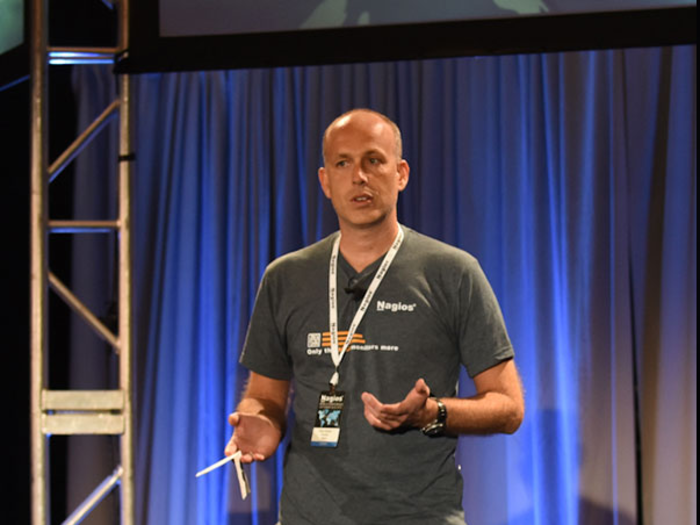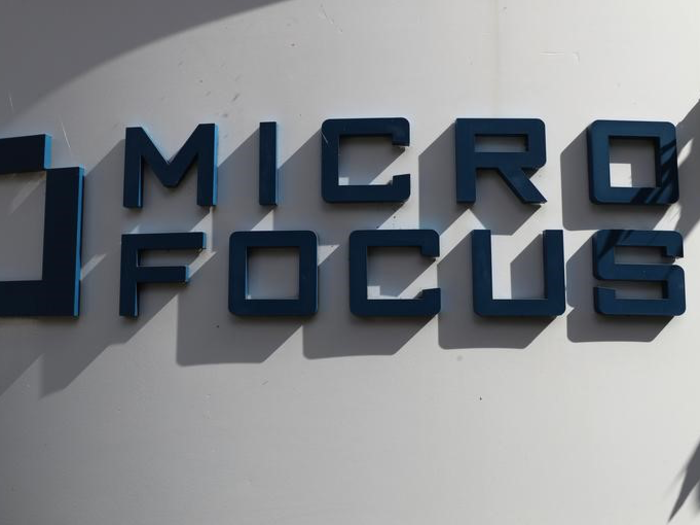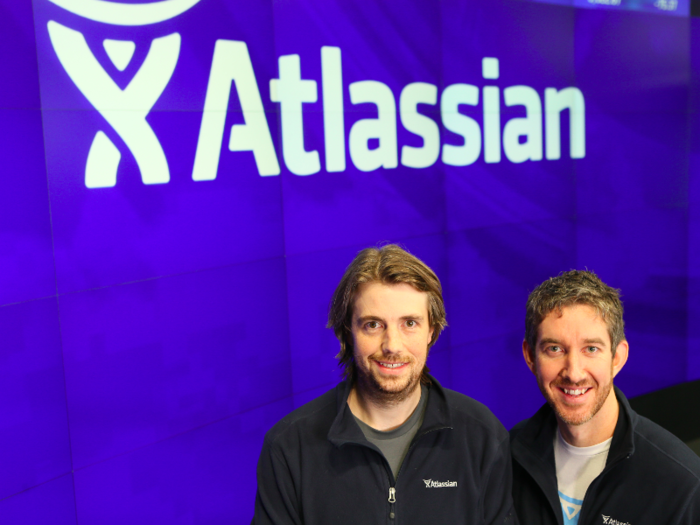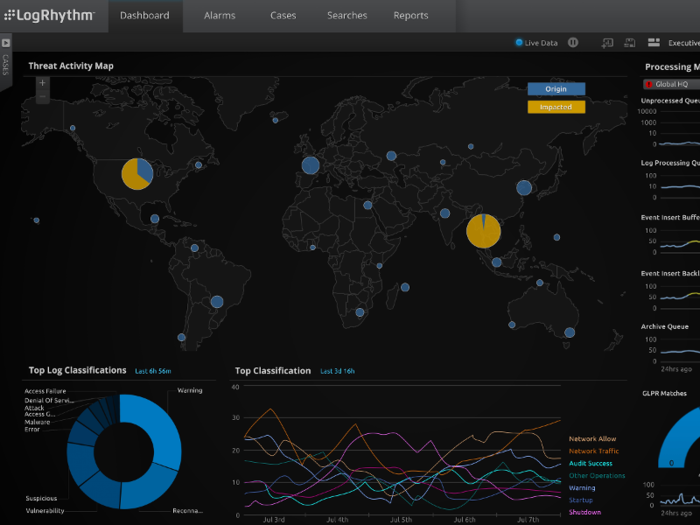- Home
- slideshows
- miscellaneous
- These are the top 18 DevOps companies today, according to reviews from IT professionals
These are the top 18 DevOps companies today, according to reviews from IT professionals
Splunk

Cisco's AppDynamics

Market Cap: $202.65 billion
Rating: 4.2 / 5 stars
Product: AppDynamics
RankingScore: 76
Category: Application Performance Management
Most Compared to: Dynatrace (25%), CA APM (11%), New Relic APM (10%)
AppDynamics can track application performance to make sure software is working correctly, as well as monitor how customers interact with an application. It also helps companies see their infrastructure's impact on application performance.
AppDynamics founder Jyoti Bansal sold his company to Cisco for $3.7 billion last year, right before AppDynamics was planning to go public — a move that was surprising some of its bankers. He spent four days without sleep struggling with the decision, but in the end, Cisco made an offer that was nearly twice what AppDynamics was pricing at its IPO. Bansal grew AppDynamics to a $1 billion company in under seven years.
Dynatrace

Market Cap: private
Rating: 4.4 / 5 stars
Product: Dynatrace
RankingScore: 92
Category: Application Performance Management
Most Compared to: AppDynamics (23%), New Relic APM (16%), CA APM (10%)
Dynatrace, a Massachusetts-based company, helps IT departments in medium and large businesses manage performance for a company's programs and systems. It monitors, manages and optimizes business-critical applications, which helps companies track and understand the performance of their software applications.
Nagios

Market Cap: private
Rating: 4.3 / 5 stars
Product: Nagios XI
RankingScore: 69
Category: Network Monitoring Software
Most Compared to: Zabbix (25%), SolarWinds NPM (11%), PRTG (8%)
Nagios provides open source network, applications and server monitoring tools. Nagios' XI checks the network for connection problems and allows companies to detect application or service problems to eliminate downtime. Nagios' tools also monitors routers, switches and more.
Tricentis

Market Cap: private
Rating: 4.1 / 5 stars
Product: Tricentis Tosca
RankingScore: 76
Category: Functional Testing Tools
Most Compared to: Micro Focus UFT (QTP) (29%), Selenium HQ (16%), Worksoft Centrify (8%)
Tricentis Tosca is a testing platform that helps businesses make sure each release is working correctly. It also lets businesses to manage these automated tests and know if there are any risks with the release. Whenever developers want to release new changes, this platform will automatically test the code to make sure there are no bugs or problems. This allows developers to release their code to customers faster and more often, as part of the Continous Integration and Continuous Delivery trends.
Tricentis was founded in Vienna in 2009 and is now based in the Silicon Valley. It has become a leader in automating testing and deploying software, and it competes with HPE and IBM.
Micro Focus

Market Cap: Not available, its stock is traded over the counter
Rating: 4.1 / 5 stars
Product: Micro Focus ALM
RankingScore: 85
Category: Application Lifecycle Management (ALM) Suites
Most Compared to: Atlassian Jira (53%), TFS (19%), CA Agile Central (6%)
Micro Focus builds, sells and supports software for IT services and IT management. It also provides predictive analytics. Its application lifecycle management (ALM) software and solutions allows teams to release apps faster and encourage collaboration throughout the development process.
Broadcom

Market Cap: 92.96 billion
Rating: 4.1 / 5 stars
Product: CA Service Virtualization
RankingScore: 94
Category: Service Virtualization
Most Compared to: Parasoft Service Virtualization (30%), Micro Focus Service Virtualization (20%), IBM Rational Test Virtualization (19%)
In July, the chipmaker company Broadcom announced it would acquire CA Technologies for $18.9 billion, just four months after President Donald Trump blocked Broadcom's acquisition of Qualcomm. Analysts saw this as a pivot to software for Broadcom. CA Technologies is the company behind the product CA Service Virtualization, a popular DevOps tool.
CA Service Virtualization accelerates application delivery. It allows developers, testers, integration and performance teams work together to deliver applications more frequently and make sure that they are reliable. It also reduces the cost of software testing and makes the software release process faster.
Atlassian

Market Cap: 17.21 billion
Rating: 4 / 5 stars
Product: Jira
RankingScore: 76
Category: Application Lifecycle Management (ALM) Suites
Most Compared to: TFS (33%), Micro Focus ALM (17%), IBM Rational Team Concert (5%)
Jira is a project management tool for software teams to plan, track, and release software. This flagship software from the Australian company Atlassian was recently completely redesigned. Users can create use cases and issues for their projects, plan sprints, distribute tasks across the team and create or follow a workflow. The platform's visual data allows users to see up-to-date information on the progress of their team's work and prioritize tasks. Jira also integrates tools that allow users to document project requirements, update code and monitor the software.
Atlassian also recently acquired Opsgenie for $295 million. This IT management tool alerts employees and helps them coordinate to respond incidents, which means that it also has a role to play in the DevOps trend.
Microsoft

Market Cap: 805.77 billion
Rating: 4.2 / 5 stars
Product: Team Foundation Server
RankingScore: 59
Category: Test Management Tools
Most Compared to: Jira (64%), Micro Focus ALM (12%), CA Agile Central (5%)
Team Foundation Server (TFS) is a collaborative software developer tool from Microsoft used to share code, track work, and ship software. TFS includes tools to monitor bugs, plan projects, and prioritize and keep track of tasks, plan projects. Users can work in any language on TFS, and they can build, package, test and release code to deliver software to customers faster.
In the past few years, Microsoft has made a greater investment in the developer and open source community. This year, it acquired GitHub for $7.5 billion and joined an open-source patent community called the Open Invention Network.
Red Hat

Market Cap: 30.5 billion
Rating: 4.2 / 5 stars
Product: Ansible
RankingScore: 69
Category: Configuration Management
Most Compared to: SCCM (21%), BMC BladeLogic Automation Suite (13%), Micro Focus Operations Orchestration (11%)
Ansible is an IT automation technology from Red Hat. It automates manual IT tasks that are usually repetitive, whether in networking, development, infrastructure, applications, or security.
Just October, IBM announced it would acquire Red Hat for a whopping $34 billion. This was the biggest software deal of all time, and Wall Street expects that this acquisition will help IBM in the cloud wars against Microsoft and Amazon. Despite concerns from developers in the open source community, IBM has maintained that Red Hat will stay independent.
Sauce Labs

Market Cap: private
Rating: 4.6 / 5 stars
Product: Sauce Labs
RankingScore: 68
Category: Functional Testing Tools
Most Compared to: BrowserStack (54%), Perfecto Mobile (18%), Testdroid (4%)
Sauce Labs offers cloud software for testing web and mobile apps. This software ensures that apps and websites work on every browser, operating system and device. The software allows team to develop, test and release faster and more frequently while making sure the apps work correctly for users.
SolarWinds

Market Cap: $1.07 billion
Rating: 4.3 / 5 stars
Product: SolarWinds NPM
RankingScore: 74
Category: Network Monitoring Software
Most Compared to: PRTG (19%), Nagios XI (16%), ManageEngine OpManager (10%)
SolarWinds offers products and tools for IT management. These tools offer solutions to help IT professionals address a variety of issues with their IT infrastructure, from servers to software. The Austin-based company went public in October with a valuation of $4.6 billion.
Its Network Performance Monitor (NPM) is network monitoring software that helps companies reduce network outages and improve performance. It scans for problems, alerts companies when there are outages and reduces downtime. That way, network performance issues can be detected, diagnosed and resolved.
Jenkins

Market Cap: n/a, Jenkins is free open source software
Rating: 4.1 / 5 stars
Product: Jenkins
RankingScore: 85
Category: Build Automation
Most Compared to: Bamboo (34%), JetBrains TeamCity (26%), CloudBees (11%)
Jenkins is an open source automation server that allows users to build, deploy and automate projects across multiple platforms. This Java-based program allows users to release code and can distribute work across multiple machines. As open source software, it means that anybody, anywhere, can download Jenkins and tweak it to their exact liking, and that it's developed by a thriving community of volunteer programmers.
LogRhythm

Market Cap: private
Rating: 4.2 / 5 stars
Product: LogRhythm
RankingScore: 71
Category: Log Management
Most Compared to: Splunk (46%), IBM QRadar (15%), AlienVault (11%)
LogRhythm is a security platform to help teams uncover threats faster and manage security tasks to protect businesses from vulnerabilities and malware. It uses artificial intelligence technology to respond to cyberthreats. LogRhythm is also one of the top cybersecurity companies, according to IT professionals.
LogRhythm had planned to go public in 2015, but then it changed its mind. It has raised over $126 million in venture capital.
Veracode

Market Cap: private
Rating: 4.1 / 5 stars
Product: Veracode
RankingScore: 82
Category: Application Security
Most Compared to: SonarQube (32%), Micro Focus Fortify on Demand (22%), Checkmarx (13%)
Veracode's platform assesses the security of applications throughout the entire process of developing software. This way, it eliminates vulnerabilities and blocks threats before the product even ships out to customers. Veracode also has security experts who can coach users in how to use the platform and help their companies be more secure.
On Nov. 5, the private equity investment firm Thoma Bravo announced it would acquire Veracode from Broadcom.
Everbridge

Market Cap: $1.41 billion
Rating: 4.6 / 5 stars
Product: Everbridge IT Alerting
RankingScore: 58
Category: IT Alerting & Incident Management
Most Compared to: Send Word Now (30%), xMatters IT Management (28%), PagerDuty (18%)
Everbridge IT Alerting identifies and contacts the best people to respond to an incident. It uses pre-built message templates and assembles online conferences and chat rooms to coordinate incident resolution. It also automatically sends alerts until someone responds to them, analyzes team incident response patterns, manages on-call scheduling, and uses automation to execute resolution plans.
Everbridge went public in 2016.
xMatters

Market Cap: private
Rating: 4.3 / 5 stars
Product: xMatters IT Management
RankingScore: 54
Category: IT Alerting & Incident Management
Most Compared to: Everbridge IT Alerting (42%), PagerDuty (26%), Atlassian OpsGenie (11%)
xMatters IT Service Management is an incident response and resolution platform that helps teams resolve and communicate about incidents such as systems outages. It includes templates to share technical and business information with the people involved to inform them when something goes wrong at a company. It also proactively prevents incidents and automates collaboration so that businesses quickly recover from any incidents.
In February, xMatters raised $40 million in a Series D funding led by Goldman Sachs.
PagerDuty

Market Cap: Private
Rating: 4.5 / 5 stars
Product: PagerDuty
RankingScore: 52
Category: IT Alerting & Incident Management
Most Compared to: VictorOps (10%), ServiceNow (10%), OpsGenie (10%)
PagerDuty is a popular tool that alerts the best people to respond to any given incident, alerting only the right people when a system fails. It provides team members with information about the incident and helps coordinates engineers so they can quickly resolve the incident. It also analyzes patterns, which can help teams identify best practices for future training.
Here are IT Central Station's ranking criteria, for the curious.

IT Central Station computes a RankingScore for each product based on a composite of:
- Number of reviews
- Average star rating
- Number of times the product has been compared with alternative solutions
- Number of views of reviews
- Number of followers on IT Central Station
The total ranking of a product is based on a weighted aggregate score. The score is calculated as follows: The product with the highest count in each area gets the highest available score. (20 points for Reviews; 16 points for Views, Comparisons, and Followers.) Every other product gets assigned points based on its total in proportion to the #1 product in that area. For example, if a product has 80% of the number of reviews compared to the product with the most reviews then the product's score for reviews would be 20% (weighting factor) * 80% = 16. For Average Rating, the maximum score is 32 points awarded linearly based on our rating scale of 1-10. If a product has fewer than ten reviews, the point contribution for Average Rating is reduced (one-third reduction in points for products with 5-9 reviews; two-thirds reduction for products with fewer than five reviews). Reviews that are more than 24 months old, as well as those written by resellers, are completely excluded from the ranking algorithm.
Popular Right Now
Popular Keywords
Advertisement